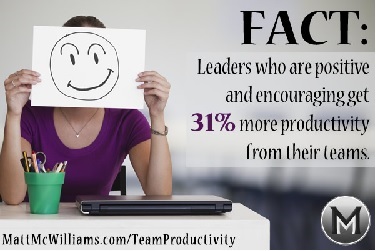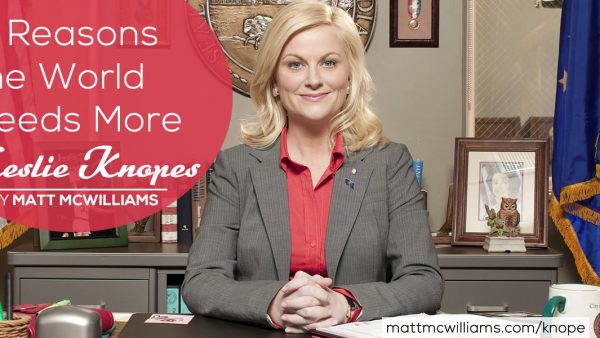This is a guest post from Dorie Clark. Dorie is a marketing strategist who teaches at Duke University’s Fuqua School of Business. She is the author of the amazing new book, Stand Out. For more from Dorie, check out my recent podcast interview with her.
One of the things I like best about Matt’s blog is its emphasis on the importance of giving back, and having a purpose beyond just making money. Abraham Maslow famously developed his “hierarchy of needs,” expressing the things (starting with food and water, and moving toward purpose and fulfillment) that a human must have in order to thrive.
The highest point on the scale, Maslow realized, was self-transcendence, or going beyond our own individual experience. Self-transcendence can be understood spiritually, but it also reflects a fundamental truth about thought leadership: once you’ve achieved your own goals, the next—profoundly fulfilling—step is to help teach others how to achieve theirs. It’s rare behavior in a world filled with so many constantly striving professionals. But it’s one that legendary marketer and author Seth Godin has embraced, and one we can all learn from.
Godin, whom I profiled in my new book Stand Out, may be unique among top business thinkers in running his own periodic internship programs. It’s quite likely the interns would shell out substantial money for the opportunity to get to know Godin; but as part of his ethos of generosity, he does the opposite and pays them. His program is so popular, its acceptance rate is lower than Harvard Business School’s. Tim Walker, who interned with Godin in 2013, describes the practices that make Godin a great mentor – and which you can follow to up your mentorship A game.
3 Keys to Being a Great Mentor
1. Set a positive tone.
One of the best parts of the experience, Walker says, was observing Godin’s leadership style up close. “It’s this amazing mix of ‘We have stuff to do and we’re going to get it done, and you’re not going to be very comfortable because you’re going to be pushed out of your limits, and I’m going to be holding you to account and there’s no messing around.’ And then mixing that with, ‘And I’m going to cook all of you lunch every day and tell you wonderful stories to inspire you and show you that it’s okay, whatever you’re feeling in this situation.’”
2. Take a genuine interest in your mentees.
At one point, Walker recalls, a fellow intern from Panama was telling a story about how fences there are a sign of being middle class. Godin was transfixed. “He just stopped the whole thing and said, ‘Tell me more about this.’ She told him, and he was like, ‘I’m a story collector. This is what I do. Everywhere I go, I’m looking for these nuggets that can teach me something and teach other people something in a new way.’ You can see his eyes light up: ‘Whoa, stop, tell me what goes on in Panama.’”
3. Don’t set yourself up as perfect.
The project Walker and his compatriots worked on was called Krypton, which created curricula for people to study an idea (such as overcoming fear) and come together to discuss it. The content they developed during the internship came together well; the technology platform, not so much. The tech glitches didn’t dampen Walker’s enthusiasm for the project, however. “Sometimes, if you’re around your hero and something doesn’t work, you’re like, ‘He’s not the person I thought he was.’” But Godin was different from the start. “He didn’t build himself up to be perfect. That helps when things go wrong; that’s great leadership: ‘Failure is okay. We tried things as an experiment, and we do our best.’”
If you feel called to give back, mentorship – especially the thoughtful kind practiced by Godin – is a great way to do it. Think through who your ideal mentee would be. What kind of person could you help the most? Who would you be most interested in spending time with? What would you like to learn from the experience?
If you’d like to learn more about how to find, and be, a great mentor, you can check out my free e-book Mentorship 2.0: How to Find the Mentor You Need. And you can ask yourself these questions (and get even more in my free workbook here):
- What will you do to support and encourage the next generation of talent?
- Could you take on an intern, or group of interns, to help with a project? What would it look like? How could you create a great learning experience—for them and for you?
- Alternatively, would you be interested in interning or apprenticing for someone else? Whom would you choose? What would you like to learn?
- Who would be your ideal mentor? How will you get noticed by that person and build a relationship with him or her? How can you add value for him or her as well?
Want to learn how to STAND OUT? Check out Dorie’s free Stand Out Self-Assessment Workbook and her new book Stand Out: How to Find Your Breakthrough Idea and Build a Following Around It.
Questions?
Text me anytime at (260) 217-4619.
Or…check out some of my free reports to help you get on the right track:
 |
 |
 |
 |
 |
 |
 |
 |
 |





This is a great post, Dorie. Finding a mentor has always been a challenging part of my personal and professional life. Finding someone who’d be ready to take you under their wings is a tough deal. I’ve downloaded your ebook.
Love it Sabita. To your point about people who make themselves out to be great mentors, but aren’t…I think some of the best mentors I’ve had are the most humble people. They know they aren’t perfect, often struggle with the same things I do, but have learned to get past the struggle. They know they, too, are works in progress.
You’re right, Matt. The problem is finding the right person who can guide you. If one is struggling with say psychological barriers, finding someone who can be of help to them is a challenge indeed. However, in my experience conducting research and reading a lot pays off. It has helped me find out who the right people to connect with are for the long-term instead of just focusing on short term gains. It’s an awakening moment when you finally find the right one whose ready to take you under their wings. They’re indeed those who’ve been there and have faced the worse themselves.
Exactly!
One of my mentors came from asking enough people and I started hearing his name a lot. So I asked him and he said yes 🙂
Sometimes it IS that easy haha.